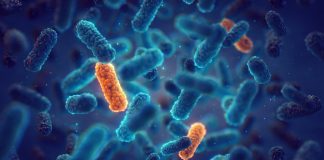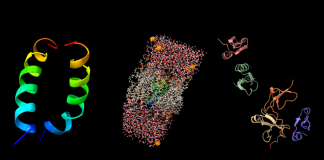The AIMed network is accelerating the development of materials with antimicrobial properties to counter post-operative infection by antibiotic-resistant bacteria.
AIMed is a Marie Skłodowska-Curie Innovative Training Network (MSCA-ITN) facilitating the development of materials with antimicrobial properties appropriate for utilisation on the surfaces of orthopaedic implants to overcome the escalating challenge of post-operative infection by antibiotic-resistant bacteria. AIMed has set out to achieve this by educating 15 early-stage researchers on how to develop these materials with antimicrobial properties.
This project has received funding from the European Union’s Horizon 2020 research and innovation programme under the Marie Skłodowska-Curie grant agreement AIMed No 861138.
Innovative Training Networks
The Innovative Training Networks (ITNs) have been set up to train a new generation of creative, entrepreneurial, and innovative early-stage researchers, who are capable of countering current and future challenges, as well as transforming knowledge and ideas into products and services for both social and economic benefit.
ITNs support competitively chosen collaborative research training and/or doctoral programmes, implemented by partnerships of universities, research institutions and businesses from different countries in Europe and beyond.
Investigating materials with antimicrobial properties
The AIMed network conducts comprehensive investigations of the properties of new materials with antimicrobial properties and antimicrobial coatings to certify that they are viable for utilisation in future implants. Furthermore, the network assesses antibacterial activity and biocompatibility using appropriate models.
AIMed seeks to:
- Establish antimicrobial peptides through classic solid-phase synthesis and recombinant molecular biology techniques and construct a vast database with antimicrobial peptide sequences;
- Utilise innovative methods for immobilising and conjugating antimicrobial peptides on material surfaces to create smart implants; and
- Evolve nanolayer formations by magnetron sputtering and study laser-induced nano-patterns on metals, ceramics, and polymers.
AIMed acknowledges that there is a critical requirement for interdisciplinary trained researchers with knowledge of effective antimicrobial methodologies. The network offers the following:
- Cutting-edge tools to efficiently detect and comprehend mechanisms and behaviours of peptides in interaction with bacteria and cells;
- The technical skills to modify metals, ceramic and polymer surfaces using chemical and physical methods; and
- The analysis of data and the application of expertise and experience across the engineering life science interface, alongside the transferable skills required to communicate and work efficiently across disciplinary and sectoral boundaries.
AIMed project coordinator: Professor Artemis Stamboulis
AIMed is coordinated by the University of Birmingham’s Professor Artemis Stamboulis of the School of Metallurgy and Materials. The project is also associated with the Surgical Reconstruction and Microbiology Centre (SRMRC) in Birmingham, where Professor Stamboulis is leading research into antimicrobial bioinks.
Professor Artemis Stamboulis leads the Biomaterials Research Group in the School of Metallurgy and Materials to design, synthesise, and characterise novel antimicrobial peptides that mimic the antimicrobial core of human defensins.
RESEARCH AND EXPERTISE:
- Synthesis of novel antimicrobial peptides (AMPs) by solid-state synthesis and molecular biology;
- Creation of a large database with peptide sequences;
- Immobilisation and conjugation of novel antimicrobial peptides on material surfaces to develop “smart” implants utilising 3D printing;
- Nanolayer formation on ceramics and metals by magnetron sputtering through a biomimetic approach;
- Development of laser-induced nano-patterns on metal, polymer and ceramic surfaces; and
- Novelties in biological evaluation.




